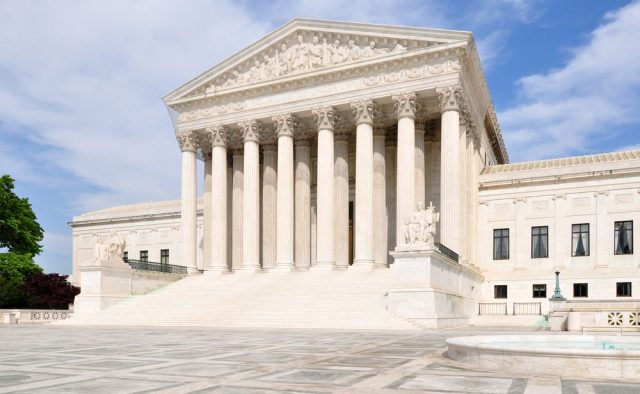 On Monday, the U.S. Supreme Court affirmed the decision of a three-judge panel from the U.S. District Court in Washington, D.C., ruling against the Louisiana Republican Party’s challenge of the Bipartisan Campaign Reform Act of 2002 (BCRA). The BCRA, also known as the McCain–Feingold Act, was enacted to plug up a hole in federal elections law, whereby donors could get around federal limits on donations by supporting local candidates or political issues that could impact federal elections. The non-federal donations, or “soft money,” were not covered by federal restrictions, and thus donors were able to use it as a loophole to impact federal races from the outside. The BCRA said that was no longer legal, and the Louisiana GOP sued, claiming this law violated the First Amendment.
On Monday, the U.S. Supreme Court affirmed the decision of a three-judge panel from the U.S. District Court in Washington, D.C., ruling against the Louisiana Republican Party’s challenge of the Bipartisan Campaign Reform Act of 2002 (BCRA). The BCRA, also known as the McCain–Feingold Act, was enacted to plug up a hole in federal elections law, whereby donors could get around federal limits on donations by supporting local candidates or political issues that could impact federal elections. The non-federal donations, or “soft money,” were not covered by federal restrictions, and thus donors were able to use it as a loophole to impact federal races from the outside. The BCRA said that was no longer legal, and the Louisiana GOP sued, claiming this law violated the First Amendment.
A key part of the BCRA kept state and local parties from using soft money for “federal election activity,” which includes voter registration activity close to a federal election; voting initiatives for elections where a federal candidate is on the ballot; public communications referencing a candidate running for federal office, and supporting or opposing a candidate for that office; and services by a state party employee who spends at least a quarter of their time on a federal election. The BCRA also prohibits using soft money to fundraise for any of those activities.
The District Court panel said that the BCRA was constitutional, granting summary judgment in favor of the Federal Elections Commission. The court’s decision said that the Louisiana Republicans’ challenge wasn’t any different from a previous challenge brought in two previous cases, one by Senator Mitch McConnell, and another by the Republican National Committee.
“Voters are the winners of this decision to turn back unregulated soft money and to reaffirm the importance of effective party contribution limits,” said Tara Malloy, deputy executive director at the Campaign Legal Center, who had filed an amicus (friend of the court) brief in the case. “Without these soft money limits, political parties would again become vehicles through which big donors would attempt to buy influence over elected officials and their policy decisions.”